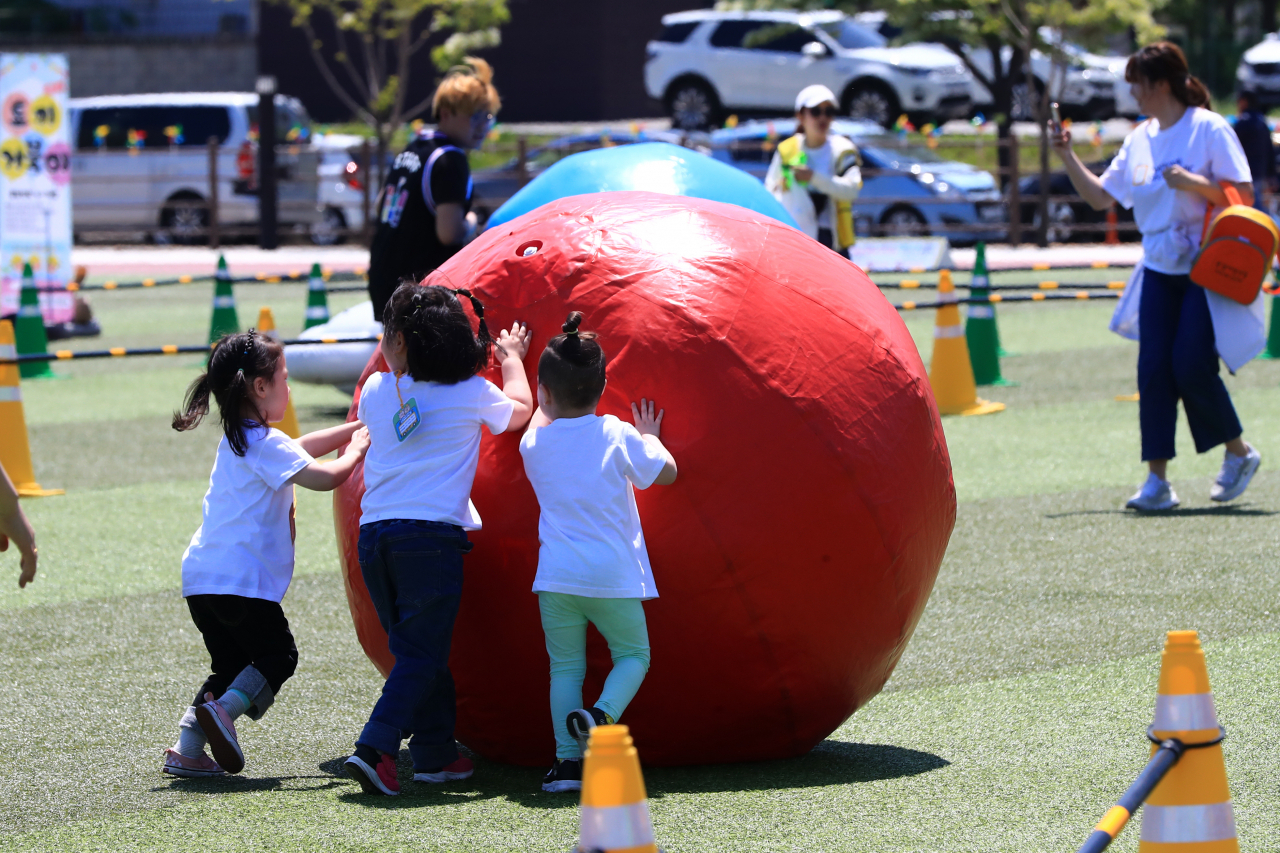Seoul City to spend W400b on boosting children's playtime
By Son Ji-hyoungPublished : May 3, 2023 - 15:05

The Seoul Metropolitan Government announced Wednesday plans to spend 414.6 billion won ($309.8 million) in the next four years until 2026 to improve children's well-being in South Korea's capital city.
The budget will be used to increase children's playtime; spread the culture of respecting children's rights; help children shape their future careers; fight the digital divide among children; ensure children's safety from car accidents and domestic violence; and tackle children's depression, according to the municipal government.
Nearly 90 percent of the proposed budget will be spent to boost children's playtime from 2023 to 2026, according to the plan. In particular, some Seoul-backed programs will be smartphone-free, while some others will feature virtual reality technologies. The budget will also be used to train child care professionals.
The announcement came two days before Children's Day this May 5, the day that was first declared by writer and children's rights activist Bang Jeong-hwan in 1922.
"Korea is one of the countries with the lowest children's satisfaction index. Children's playtime has greatly decreased and more children here get stressed and depressed," Seoul Mayor Oh Se-hoon said at an event to promulgate the city's own Children's Bill of Rights.
"Under these circumstances, (Seoul) is trying to find out what policy should be laid out to make more children happy."
Oh said that while children in Seoul have been able to take advantage of the benefits of digital technology in society, excessive use of it, combined with academic pressure and the fallout of the COVID-19 pandemic, has led to problems such as less playtime and increased stress levels, among others.
Seoul estimates the number of children aged between 1 and 13 to reach 420,000, out of the city's total population of some 9.7 million. According to Seoul city, the children in this age range are "Generation Alpha," or the digital native generation, unlike millennials or Generation Z, who had both virtual and offline experiences growing up.
Playtime for children in this age range declined to 2 hours and 22 minutes each day in 2021, a 61 percent drop from 2017, according to a Seoul municipal government survey. This data referred to playtime as time spent with friends outdoors. In the same survey, a similar trend was also observed in separate data covering other playtime activities such as reading books, doing exercise, playing PC games and more.
As a result, more children have been left dissatisfied with their lives and prone to developing poor mental health, the local government said in a statement.
Korea was ranked the worst in terms of children's happiness out of 22 member countries by the Organization for the Economic Cooperation and Development in 2021, according to a poll by the Korea Bang Jeong-hwan Foundation, named after the children's rights activist.
Moreover, the number of children suffering from depression reached almost 60,000, up 89 percent from 2017 to 2021, according to the state-run Health Insurance Review and Assessment Service.





![[Weekender] How DDP emerged as an icon of Seoul](http://res.heraldm.com/phpwas/restmb_idxmake.php?idx=644&simg=/content/image/2024/04/25/20240425050915_0.jpg&u=)



![[Music in drama] An ode to childhood trauma](http://res.heraldm.com/phpwas/restmb_idxmake.php?idx=644&simg=/content/image/2024/04/25/20240425050929_0.jpg&u=)








![[Herald Interview] Mistakes turn into blessings in street performance, director says](http://res.heraldm.com/phpwas/restmb_idxmake.php?idx=652&simg=/content/image/2024/04/28/20240428050150_0.jpg&u=20240428174656)
